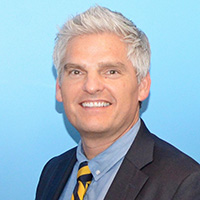As we celebrate Pride Month in June, the Indian Health Service recognizes the diversity of our American Indian and Alaska Native patients. On June 16, 2023, IHS Director Roselyn Tso signed an issuance to the Indian Health Manual, Circular 23-02, “Data Capture of Sexual Orientation and Gender Identity Information.”
This circular provides a standard to capture structured data for sexual orientation and gender identity (SO/GI) in the data fields of an IHS patient’s health record. As with any patient data, SO/GI data collected and entered into the electronic health record must be obtained in a manner that is culturally competent and affirming to patients that identify as Two-Spirit, lesbian, gay, bisexual, transgender, or queer/questioning (2SLGBTQ+). An upcoming IHS training on the SO/GI data capture will be available in August of this year.
While the science is not yet perfect and some 2SLGBTQ+ patients inevitably will not self-disclose, asking about sexual orientation and gender identity in clinical settings will improve the health outcomes of 2SLGBTQ+ patients, and will help advance our understanding of 2SLGBTQ+ health. The asking of such questions, both on registration forms and during patient exams, will alert providers to screen patients for conditions disproportionately affecting 2SLGBTQ+ people and provide preventive health education appropriate to 2SLGBTQ+ patients.
As always, IHS staff will continue to ensure that patients’ rights to privacy are protected by all who have access to patient information. Furthermore, IHS patients will be allowed to voluntarily provide SO/GI-related information for capture in their health records, which includes legal sex, gender identity, preferred name, pronouns, and sexual orientation. The IHS staff who perform patient registration duties will collect the information through an identified local process that may include the use of an intake form. Please remember that IHS patients may decline to provide SO/GI information.
More than a gesture of goodwill and inclusion from IHS, this data collection supports the 2015 Certified Health Information Technology rules from the Office of the National Coordinator for Health Information Technology. The rules require all electronic health record systems to allow users to record, change and access structured data on SO/GI. The collection of additional data is confidential and will provide patient care teams with more information that supports respectful and productive engagement with Two-Spirit and LGBTQ+ patients and identifies appropriate approaches to health care services.
As we strive to create a safe, inclusive and welcoming space for our patients, we realize it may not always feel safe for Two-Spirit and LGBTQ+ individuals. Therefore, our efforts for inclusion go beyond creating safe physical spaces. The IHS Office of Information Technology, Office of Resource Access and Partnerships, and Office of Clinical and Preventive Services welcome the opportunity for Two-Spirit and LGBTQ+ people to share information about their SO/GI experiences in IHS clinics.
Please contact Rick Haverkate (he/him) to communicate how IHS can continue to build a welcoming, patient-centered environment that opens the door to a more trusting patient-provider relationship and improved health outcomes for our patients.
Related content:
IHS Lesbian, Gay, Bisexual, Transgender, Questioning and Two Spirit Health
IHS Electronic Health Record
Electronic Health Record Policies and Procedures



